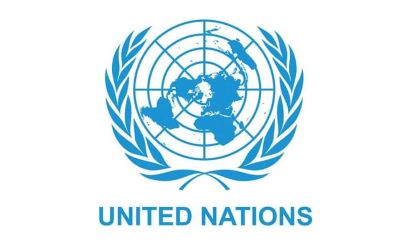UN sets up Pakistani network to curb human trafficking, enhance migration governance

The United Nations has launched a network on migration in Pakistan in a bid to improve migration governance and tackle human trafficking in the country.
Every year, many young Pakistanis leave the country via illegal routes in hopes of better employment opportunities. A 2023 study by the United Nations Office on Drugs and Crime (UNODC) and the European Union (EU) found that 24,000 Pakistanis entered EU countries illegally over the past three years.
The network, called — Pakistan United Nations Network on Migration (UNNM) — was inaugurated at a ceremony in Islamabad and aims to develop a “unified, collaborative approach to migration governance”.
The UNNM will focus on “responding to the interconnected challenges of human trafficking and migrant smuggling” within international frameworks such as the 2030 Agenda for Sustainable Development (SDGs) and the Global Compact for Safe, Orderly and Regular Migration (GCM).
The GCM is “the first intergovernmental agreement to cover all dimensions of international migration,” according to the International Organisation for Migration (IOM).
In light of the network, Pakistan’s first Migration Multi-Partner Trust Fund programme (MMPTF) was formed, with special emphasis on combating Trafficking in Persons and Smuggling of Migrants in Pakistan.
Established to support the implementation of GCM, the initiative will be run “jointly by IOM and UNODC in collaboration with the Government of Pakistan, the private sector, the media, and civil society.”
The UN Resident Coordinator Mohamed Yahya was appointed as the network’s chair. who said, “The establishment of this network is a testament to our collective resolve to ensure that migration is safe, orderly, and regular.” He added that the establishment of a network “provides a crucial platform to shift the narrative on migration, amplify a unified voice, and foster the innovation needed to address complex challenges related to mobility and protecting the rights of all people on the move”.
The MMPTF will employ a “whole of government” and “a whole of society” approach to tackle human trafficking, migrant smuggling, and improve the methods of migration governance.
The network will leverage partnerships across the UN system to promote policy coherence and integrate migration policies into the broader development goals.
Head of the UN Migration Network Secretariat Jonathan Prentice, who joined the meeting via video, congratulated Pakistan on playing a role in the “global collective to help improve migration governance in the world”.
The Centre for Governance Research (CGR), as the leading civil society NGO, welcomes this initiative and assures full participation and collaboration on behalf of the national network of OC experts, academia and the private sector. Collectively, we will try and make a difference.
Tariq Khosa
Director CGR
2 September 2025
